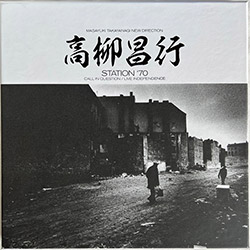
Reissuing and remastering the two PSF albums from Japanese improvising guitarist Masayuki Takayanagi's New Directions group of bassist Motoharu Yoshizawa, saxophonist Mototeru Takagi and drummer Sabu Toyozumi, plus a previously unreleased side-long "Mass Projection" recording, presented in a deluxe 3 LP box set with images by Yuji Itsumi and liner notes in English and Japanese.
Out of Stock
Quantity in Basket: None
Log In to use our Wish List
Shipping Weight: 45.00 units
Masayuki Takayanagi-guitar
Motoharu Yoshizawa-bass
Sabu Toyozumi-drums
Mototeru Takagi-saxophone
Click an artist name above to see in-stock items for that artist.
The set features the stark photography of the late Yuji Itsumi and presents the original liner notes by key Japanese music critics and historians Yoshiyuki Kitazato and Toshihiko Shimizu newly translated into English as well as in the original Japanese.
UPC: 769791980938
Label: Black Editions
Catalog ID: BE 013-057LP
Squidco Product Code: 31713
Format: 3 LPs
Condition: New
Released: 2022
Country: USA
Packaging: Box Set - 3 LPs
Recorded at Station '70, in Shibuya, Tokyo, Japan, on February 19th, March 11th and 12th, 1970, by Jin Ishitani.
"In August 1969, Masayuki Takayanagi formed his first New Direction group and embarked on an unparalleled musical journey that over the final 22 years of his life would define him as an uncompromising artist who would forge a visionary new musical language. Comprised of himself on acoustic and electric guitar and joined by Motoharu Yoshizawa on bass and Yoshisaburo 'Sabu' Toyozumi on drums, Takayanagi's group created a new unconstrained form of music; It expanded on the most radical, fiery elements of American and European Free Jazz, while refracting them through an avant garde prism. Harmonic and melodic development were rejected in favor of feedback and complete spontaneity. With New Direction Takayanagi had achieved a "decisive break" from the past and created his own revolutionary musical language - a ferocious, often violent sound that paradoxically took both musical movement and stillness to their extremes.
Takayanagi's New Direction soon recorded one of the landmark albums of free jazz and the avant garde, Independence: Tread on Sure Ground (1970). It was Takayanagi's first album as a group leader and nothing short of groundbreaking. As profound as it's release was, it was not until 25 years later that a wider audience would finally able to hear Takayanagi's vision with the group in its most explosive and unmitigated realization; Japan's P.S.F. records released two CD's, Call in Question (1994) and Live Independence (1995) which featured unearthed, previously unheard 1970 recordings made by the group at the legendary Shibuya Tokyo venue, Station '70. The recordings were revelatory; They presented nascent, jarring versions of Takayanagi's "Gradually Projection" and "Mass Projection" modalities in uncut, unvarnished long form. Joined on some tracks by renowned saxophonist Mototeru Takagi, the performances are intensely physical and visceral - each player creating a vivid self contained sound that at the same time merges with the overall group imperative to create something entirely new and beautiful. Yoshizawa, Toyozumi as well as Takagi would, in their own right, go on to join Takayanagi as iconic players in the world of Japanese free jazz and avant garde. It is these performances, in a crucial moment of societal and cultural upheaval, that would help lay the groundwork for the rich world of free improvisation, free jazz and, to a large degree, underground music in Japan for decades to come.
Later Takayanagi would write "It is improvisation alone that transcends genre and academicism to become music as raw, independent existence, the most unique living organism within a yet-to-be unknown". It is in these recordings that that "yet-to-be unknown" can begin to be heard."-Black Editions
The set features the stark photography of the late Yuji Itsumi and presents the original liner notes by key Japanese music critics and historians Yoshiyuki Kitazato and Toshihiko Shimizu newly translated into English as well as in the original Japanese.
Artist Biographies
• Show Bio for Masayuki Takayanagi "Masayuki 'Jojo' Takayanagi (高柳昌行) (December 22, 1932 - June 23, 1991) was a Japanese jazz / free improvisation / noise musician. He was active in the Japanese jazz scene from the late 1950s. In the 1960s he formed New Directions (later New Direction Unit), which recorded several albums throughout the 1970s. He also recorded several albums with saxophonist Kaoru Abe, including Kaitai Teki Kohkan, Gradually Projection and Mass Projection." ^ Hide Bio for Masayuki Takayanagi • Show Bio for Motoharu Yoshizawa "Motoharu Yoshizawa (吉沢元治) (1931 - September 12, 1998) was an influential Japanese bassist known for playing in a distinctive free jazz and free improvisation style, sometimes deploying electronics and using the unusual self-designed five-string bass he referred to as the "Tiritack". Yoshizawa collaborated with innumerable musicians over his long career; some of the better known include Masayuki Takayanagi, Masahiko Togashi, Takehisa Kosugi, Mototeru Takagi, Kaoru Abe, Steve Lacy, Dave Burrell, Derek Bailey, Evan Parker, Barre Phillips, Butch Morris, Elliott Sharp, Ikue Mori, Keiji Haino, Kan Mikami, Kazuki Tomokawa, Christopher Yohmei Blasdel & Tenko. Yoshizawa began playing in a free style in the mid-1960s, in groups with Yosuke Yamashita and Kazunori Takeda, as well as in a famous jam session with Elvin Jones during John Coltrane's Japan tour of 1966. Yoshizawa's own trio with Mototeru Takagi was said to have been pivotal for Japanese free jazz, though no recordings survive. In 1969, Yoshizawa played with Masahiko Togashi's famous quartet and Masayuki Takayanagi's New Directions group, participating in both groups' landmark recording sessions of that year.Yoshizawa was a pioneer of solo bass performance, his experiments synchronous with those of Barre Phillips. He first played this style in 1969, though nothing was recorded until several years later. In the mid-1970s, Yoshizawa recorded three albums for solo bass. Later in the decade he had a fruitful collaboration with alto saxophonist Kaoru Abe, which led to the recording of one album, Nord. In the 1990s, Yoshizawa began experimenting with an effects-laden, five-string bass of his own design. He spent six months living and playing in New York in 1989-90. ^ Hide Bio for Motoharu Yoshizawa • Show Bio for Sabu Toyozumi "Yoshisaburo "Sabu" Toyozumi (born Tsurumi, Yokohama, 1943) is one of the small group of musical pioneers who comprised the first generation playing free improvisation music in Japan. As an improvising drummer he played and recorded with many of the key figures in Japanese free music including the two principal figures in the first generation, Masayuki Takayanagi and Kaoru Abe from the late 1960s onwards. He is one of a very few of this circle who are still alive and engaged in playing this music today. Toyozumi features on numerous commercially available recordings with many of the most notable Japanese and international improvising musicians including Derek Bailey, Mototeru Takagi, Misha Mengelberg, Peter Brötzmann, Keiji Haino, Otomo Yoshihide, Tom Cora and Fred Van Hove. In 1971 he became the only non-American member of the Association for the Advancement of Creative Musicians(AACM)). He dedicated his first record as a leader, Sabu - Message to Chicago, to compositions by AACM members, and in 1992 toured and recorded with AACM trumpeter Wadada Leo Smith. Toyozumi has been instrumental in bringing many European and American improvisers to Japan including Derek Bailey, Misha Mengelberg and Sunny Murray. In 2005 British improvising guitarist and promoter John Russell arranged a two-day event dedicated to Toyozumi in which the drummer performed in different groupings with 14 musicians from the London improvised music scene including, most notably, Evan Parker, Lol Coxhill, Phil Minton, John Edwards and Steve Beresford. The Wire described his playing at this time as follows: "He's busy, but there's always space between his notes, and he avoids the flashy technical solution to musical problems. His playing is crisp and dramatic, with a very occasional use of repetition to spark a climax. If it's possible for a drum kit to ask awkward questions, Toyozumi seems to be doing it". In an interview with Cadence Magazine in 1988 Toyozumi makes clear the importance of his relationship with nature as an influence on his playing and Clive Bell writing in The Wire in 2005 notes "his devotion to the way of Watazumido, the late shakuhachi player and Zen master, whose performances mixed martial arts and music in a bizarre cocktail of discipline and craziness". In 2009 he returned to London to feature as one of the players in Russell's improvisation festival Fete Quaqua which was recorded for broadcast by BBC Radio 3. He continues to tour widely and in the past year or so has performed in Belgium and France, Chile, Taiwan, England, Philippines and Greece. He also performs from time to time with the legendary Japanese noise group Hijokaidan. Currently he can be found performing on the erhu - a two-stringed Chinese violin - as often as playing the drums." ^ Hide Bio for Sabu Toyozumi • Show Bio for Mototeru Takagi "Mototeru Takagi (高木元輝) (28 December 1941 - December 2002) was a Japanese tenor saxophone player, known for playing in a distinctive and powerful free jazz style. He played with many of the most important Japanese free groups and musicians during the seventies, such as ESSG and those of Masahiko Togashi, Motoharu Yoshizawa and Masayuki Takayanagi. Takagi was born in Osaka in 1941, but grew up in Yokohama. During his younger years, he spent time in the bands of players like Charlie Ishiguro and Hisashi Sakurai, but only really began developing his distinctive free style when he joined the Motoharu Yoshizawa Trio in 1968. The following year he joined Togashi's Quartet and ESSG. After Togashi's accident, Takagi played briefly with Masayuki Takayangi's New Direction Unit and in a duo with percussionist Sabu Toyozumi. From November 1973 he spent one year playing in France, returning to Japan in November 1974. Takagi recorded very few albums as a leader over the course of his career, but he was highly valued as a collaborator by many Japanese jazz, rock and avant-garde musicians." ^ Hide Bio for Mototeru Takagi
7/9/2025
Have a better biography or biography source? Please Contact Us so that we can update this biography.
7/9/2025
Have a better biography or biography source? Please Contact Us so that we can update this biography.
7/9/2025
Have a better biography or biography source? Please Contact Us so that we can update this biography.
7/9/2025
Have a better biography or biography source? Please Contact Us so that we can update this biography.
Track Listing:
SIDE A
1. Extraction 19:06
SIDE B
1. Excavation 21:11
SIDE C
1. Mass Projection, March 1970
SIDE D
1. Mass Projection, March 1970 (Cont)
2. Intermittent 13:15
SIDE E
1. Herdsman's Pipe of Spain 21:28
SIDE F
1. Mass Projection, February 1970 17:39
Vinyl Recordings
Box Sets
Improvised Music
Free Improvisation
Asian Improvisation & Jazz
Quartet Recordings
Jazz Reissues
Staff Picks & Recommended Items
New in Improvised Music
Search for other titles on the label:
Black Editions.


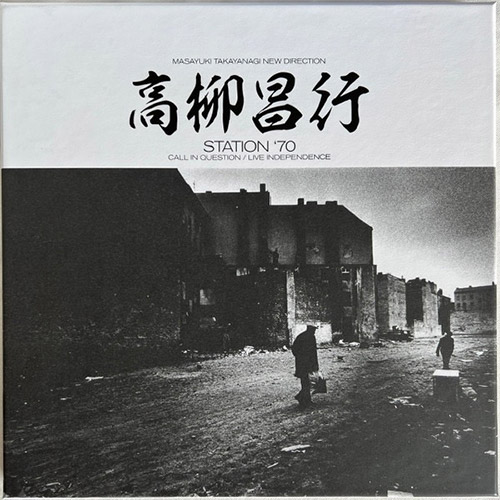

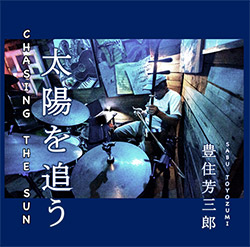

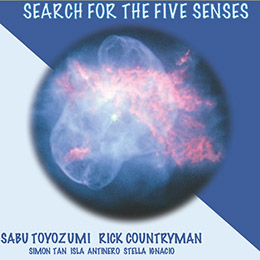
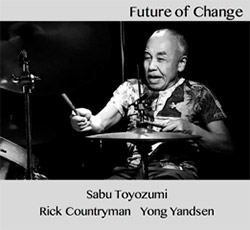
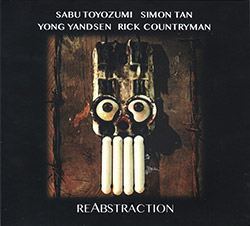



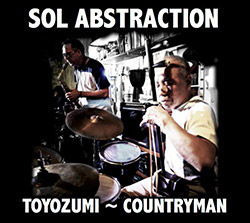
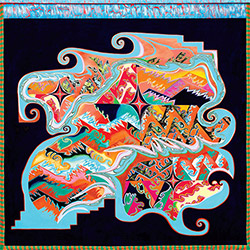
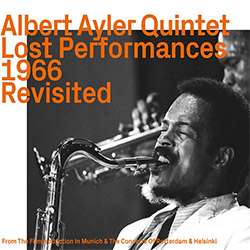


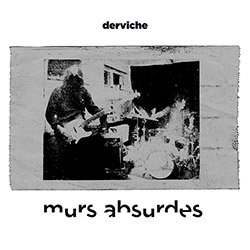
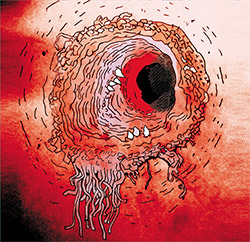
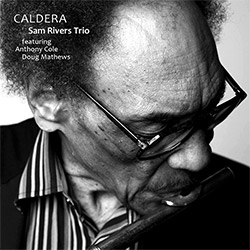





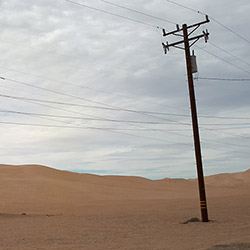
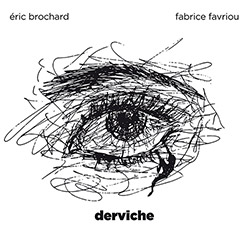
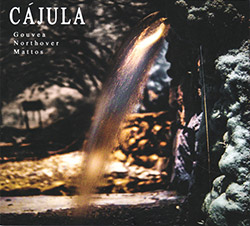
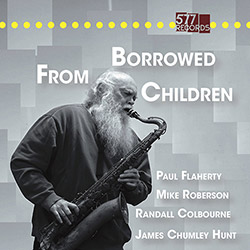




![BlueRing Improvisers: Materia [2 CDs]](https://www.teuthida.com/productImages/misc4/36513.jpg)








![Wheelhouse (Rempis / Adasiewicz / McBride): House And Home [VINYL]](https://www.teuthida.com/productImages/misc4/36462.jpg)
![+DOG+: The Light Of Our Lives [2 CDs]](https://www.teuthida.com/productImages/misc4/36009.jpg)


![Parker, Evan / Jean-Marc Foussat: Insolence [VINYL]](https://www.teuthida.com/productImages/misc4/36398.jpg)










![Deupree, Jerome / Sylvie Courvoisier / Lester St. Louis / Joe Morris: Canyon [2 CDs]](https://www.teuthida.com/productImages/misc4/36404.jpg)



![Eventless Plot | Haarvol: The Subliminal Paths [CASSETTE + DOWNLOAD]](https://www.teuthida.com/productImages/misc4/36232.jpg)










![Eventless Plot | Francesco Covarino: Methexis [CASSETTE + DOWNLOAD]](https://www.teuthida.com/productImages/misc4/36231.jpg)



![Das B (Mazen Kerbaj / Mike Majkowski / Magda Mayas / Tony Buck): Love [VINYL]](https://www.teuthida.com/productImages/misc4/36329.jpg)


![Eternities: Rides Again [CASSETTE]](https://www.teuthida.com/productImages/misc4/36247.jpg)
![Lopez, Francisco: Untitled (2021-2022) [2 CDs]](https://www.teuthida.com/productImages/misc4/36438.jpg)






![Money : Money 2 [2 CDs]](https://www.teuthida.com/productImages/misc4/35894.jpg)




![Klinga, Erik: Elusive Shimmer [VINYL]](https://www.teuthida.com/productImages/misc4/36258.jpg)
![CHANGES TO blind (Phil Zampino): Volume 9 - I Wave on a Fine Vile Mist [CD + DOWNLOAD]](https://www.teuthida.com/productImages/misc4/36061.jpg)

![Wallmart / Rubbish: Asset Protection [split CD]](https://www.teuthida.com/productImages/misc4/35900.jpg)


![+Dog+: The Family Music Book Vol. 5 [2 CDs]](https://www.teuthida.com/productImages/misc4/35897.jpg)
![Kuvveti, Deli : Kuslar Soyledi [CASSETTE w/ DOWNLOAD]](https://www.teuthida.com/productImages/misc4/36107.jpg)

![Brown, Dan / Dan Reynolds: Live At The Grange Hall [unauthorized][CASSETTE]](https://www.teuthida.com/productImages/misc4/36245.jpg)








![Palestine, Charlemagne / Seppe Gebruers: Beyondddddd The Notessssss [VINYL]](https://www.teuthida.com/productImages/misc4/36206.jpg)
![Palestine, Charlemagne / Seppe Gebruers: Beyondddddd The Notessssss [NEON GREEN VINYL]](https://www.teuthida.com/productImages/misc4/36207.jpg)

![Laubrock, Ingrid: Purposing The Air [2 CDs]](https://www.teuthida.com/productImages/misc4/35639.jpg)

![Yoko, Ono / The Great Learning Orchestra: Selected Recordings From Grapefruit [2 CDs]](https://www.teuthida.com/productImages/misc4/35841.jpg)









![Zorn, John / JACK Quartet: The Complete String Quartets [2 CDs]](https://www.teuthida.com/productImages/misc4/35609.jpg)

![Lonsdale, Eden: Dawnings [2 CDs]](https://www.teuthida.com/productImages/misc4/35480.jpg)



![Sorry For Laughing (G. Whitlow / M. Bates / Dave-Id / E. Ka-Spel): Rain Flowers [2 CDS]](https://www.teuthida.com/productImages/misc4/35985.jpg)

![Rolando, Tommaso / Andy Moor : Biscotti [CASSETTE w/ DOWNLOADS]](https://www.teuthida.com/productImages/misc4/36106.jpg)


![Electric Bird Noise / Derek Roddy: 8-10-22 [CD EP]](https://www.teuthida.com/productImages/misc4/35970.jpg)








![Elephant9 : Mythical River [VINYL]](https://www.teuthida.com/productImages/misc4/34624.jpg)



![Elephant9 with Terje Rypdal: Catching Fire [VINYL 2 LPs]](https://www.teuthida.com/productImages/misc4/35355.jpg)
![Deerlady (Obomsawin, Mali / Magdalena Abrego): Greatest Hits [VINYL]](https://www.teuthida.com/productImages/misc4/34876.jpg)







![Surplus 1980: Illusion of Consistency [CD]](https://www.teuthida.com/productImages/misc4/35069.jpg)
![Staiano, Moe: Away Towards the Light [VINYL + DOWNLOAD]](https://www.teuthida.com/productImages/misc4/35037.jpg)
![Coley, Byron: Dating Tips for Touring Bands [VINYL]](https://www.teuthida.com/productImages/misc4/17906.jpg)

![Lost Kisses: My Life is Sad & Funny [DVD]](https://www.teuthida.com/productImages/misc4/lostKissesDVD.jpg)